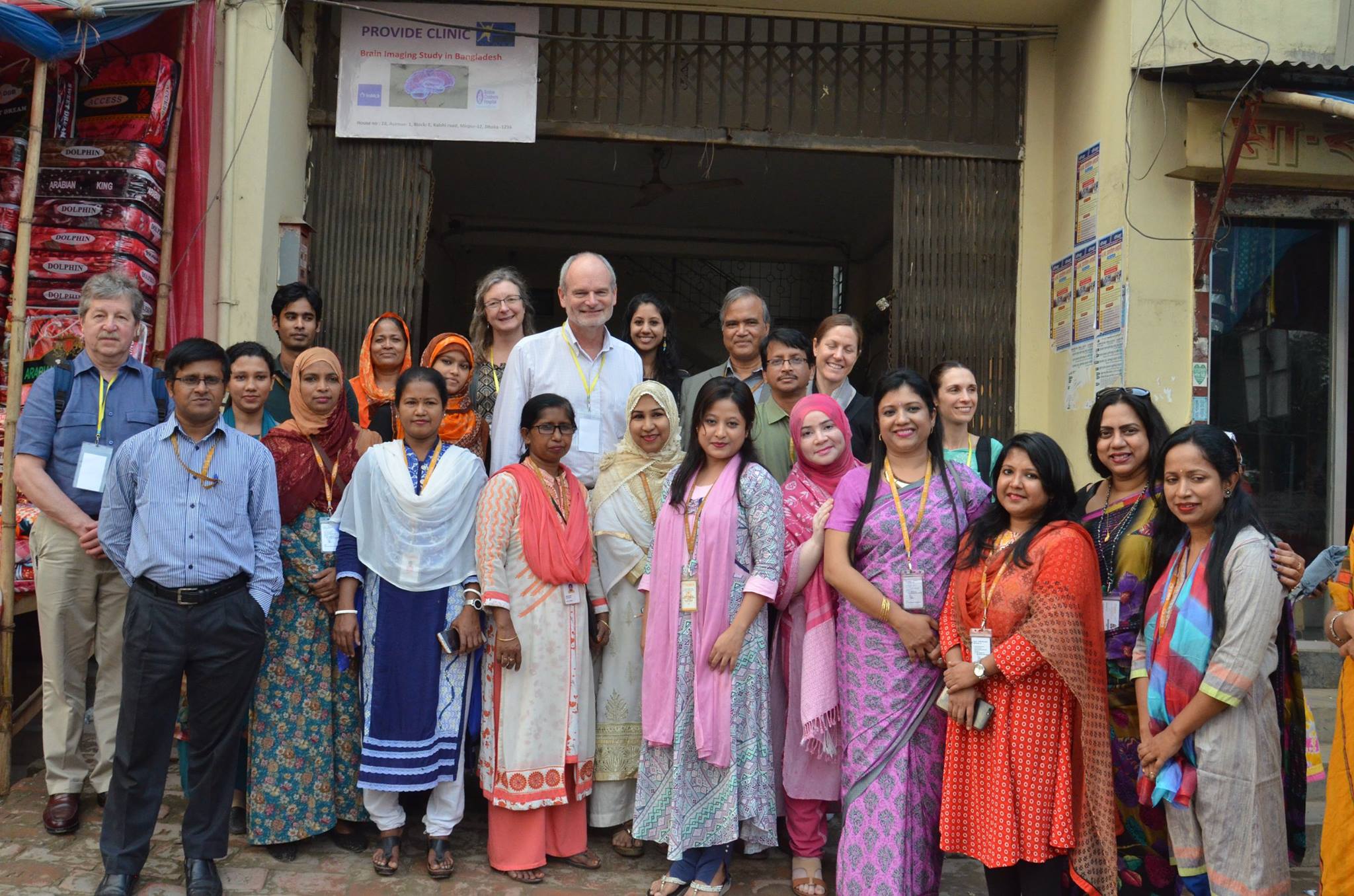How does a child’s exposure to early adversity affect their cognitive outcomes?
Studies have shown that children exposed to adversities early in life may have compromised developmental outcomes.
The Bangladesh Early Adversity Neuroimaging Project aims to address the question above in a cohort of children in Bangladesh. In this urban cohort, children may be exposed to a variety of biological, psychosocial, or environmental adversities early in life. These adversities may include frequent enteric inflammation, malnutrition, maternal depression, air/water pollution, and poor sanitation.
Study Objective
Collaborations
Study Location
We are using functional near infrared spectroscopy (fNIRS), electroencephalograms (EEG) and magnetic resonance imaging (MRI) to study the association between exposure to early adversities and brain development in children. The combination of these imaging techniques along with other behavioral assessments (Mullen Scales of Early Learning, various cognitive function tests) will provide a much-needed data base on early brain and cognitive development in a low resource region of the world.
Although previous research in low-income settings have used coarse behavioral measures to gauge development, using imaging and behavioral assessments provides us with a robust set of tools that are portable, low-cost methods of assessing cognitive development, which can potentially be deployed globally, particularly in low resource settings where adversities are abundant.
Funded by the Bill and Melinda Gates Foundation, this project is a collaboration between Harvard Medical School and Boston Children’s Hospital, University of Virginia, University College London, and the International Centre for Diarrhoeal Disease Research, Bangladesh (icddr,b).
Our satellite lab is established in the urban region of Mirpur within the capital city of Dhaka. Our equipment is set up in the existing clinic building for the PROVIDE study (PI: Dr. William Petri; University of Virginia)



